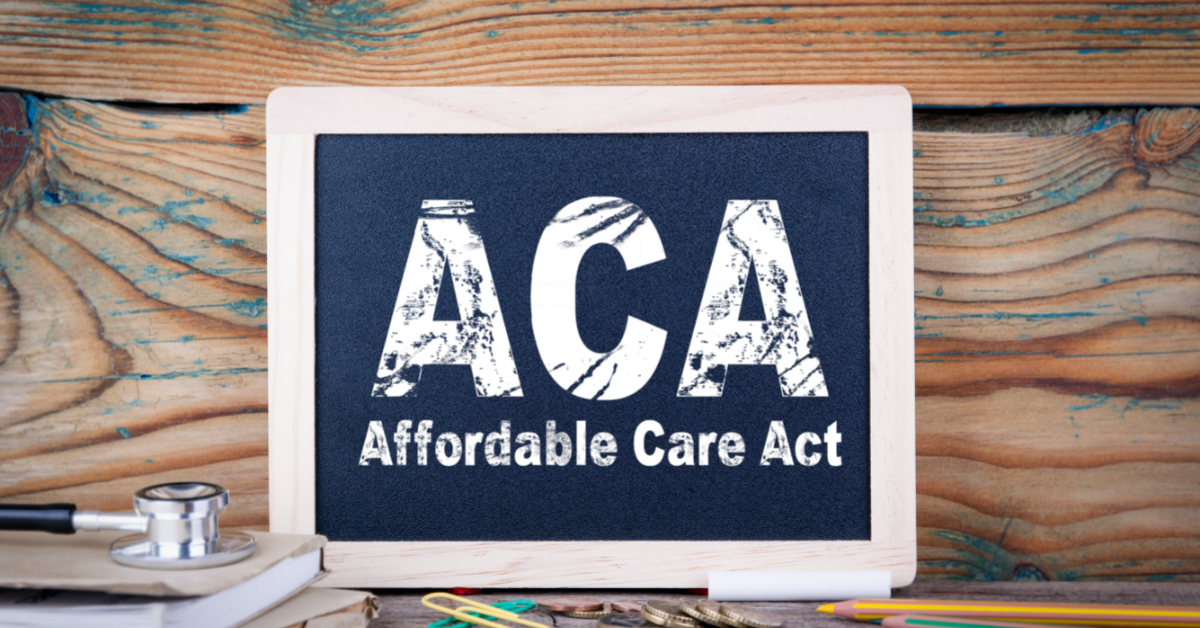High Medical Inflation, increasing FLexibility and medical plan opt-out
A recent study by analytics firm IQVIA predicts a return to medical cost trends that we saw pre-pandemic. While the pandemic caused much disruption and made medical costs wildly unpredictable, this study shows that long-term trends of increasing costs are still with us. Employers have used various means to offset those higher costs from increased cost-sharing (through premiums or plan design or both) to limiting access to employees only. Along that continuum is another option – paying employees to opt-out of the employer plan. While that seems like a classic win-win (another way to address the Great Resignation), there are issues to consider for employers.
Typically, employers who offer a cash incentive in lieu of the employer’s medical benefits do not offer the full cost of those benefits to the employees who opt-out. One reason is that there are no FICA savings on the amount. It will be included as taxable income and subject to income tax and employment taxes, unlike the medical benefit which is excluded from both types of tax and most state income taxes. Employers may also choose to spread the opt-out payments over the course of the year rather than pay them in a lump sum to limit the employer’s cost if the employee terminates employment before the end of the year.
Nevertheless, the opt-out payments can be beneficial to many employees who have other options for coverage, such as a spouse’s plan or Medicare and therefore do not need the employer coverage. And, of course, the employer will also save the employee’s share of the medical plan premium (or premium-equivalent if the plan is self-insured).
Before implementing an opt-out option, employers should consider the various legal and tax concerns associated with the arrangement. Employers should consult with their tax and legal advisors to confirm that the structure complies with applicable laws and tax options. Moreover, they should consider whether the opt-out complies with their insurance contract terms and the minimum participation requirements some insured plans demand.
opt-out options are part of the employer's cafeteria plan
The opt-out option gives employees a choice between health care coverage and taxable compensation. Such a choice makes the option a cafeteria plan. Cafeteria plans are governed by Internal Revenue Code (“IRC”) Section 125. The IRC requires all cafeteria plans to be in writing to be effective. The employer must adopt a written cafeteria plan (before the opt-out date becomes effective) or amend its current plan to include the opt-out.
Moreover, the plan must comply with all the other cafeteria plan requirements, including not discriminating in favor of the highly compensated. While it is unlikely that a cafeteria plan would discriminate in favor of such individuals (the rules are fairly complex and beyond the scope of this article) it is possible if the participation of the opt-out is larger among the rank and file as compared to the highly compensated, that the plan could discriminate in that way. Therefore, employers should at least be aware of that possibility.

World Observation – Cafeteria plans rarely fail the nondiscrimination tests. (Dependent care FSA options have been the exception to that rule and there has been an uptick in health FSAs failing the testing in recent years.) One suggested reason for the change is that fewer rank and file participate in the health FSA as their share of the underlying medical premiums have increased. Those employees see less value in the tax-free benefit when faced with the immediate reduction in take-home pay.) In addition, the Internal Revenue Service (IRS) has rarely sought to actively enforce the nondiscrimination rules. That does not mean that they should be ignored. And, if the employer is ever part of a corporate transaction, any due diligence team will ask to see that the plan complies with all of the rules, including the nondiscrimination requirements.
opt-out payments are taxable
As noted above, any payments for opting out of the employer plan are taxable to the employee like any other cash compensation. That may be a factor for the employee to consider, so it should be fully disclosed in any information provided to the employees when considering the option.
The payments are also subject to both the employer and employee FICA and FUTA taxes which are not generally included for coverage under the medical plan. The additional employer tax should be considered when calculating the appropriate amount of the opt-out payment.
opt-out payments might affect affordability calculations
To avoid potential penalties under the ACA shared responsibility rules, applicable large employers (“ALEs”) must offer affordable, minimum value health coverage to all full-time employees. In general, the affordability of an employer’s health coverage depends on whether the employee’s required contribution for self-only coverage exceeds a certain percentage (9.61% as adjusted for 2022) of the employee’s household income. The Internal Revenue Service has indicated that if the opt-out payment is solely the employee’s option with no other consideration, the opt-out amount will be treated as a cost for the employer plan and be included in the calculation of affordability. For example, if employee self-only coverage is $100/month and the opt-out amount is $200/month, the affordability calculation will be determined as though the employee cost is $300/month.
 World Observation - That could affect many lower-wage employees but, only if they seek coverage on an ACA exchange and qualify for a subsidy. In that circumstance, the ALE is subject to a penalty under the ACA for not offering affordable coverage. For 2022 the annual penalty is $4,120 ($343.33/month). That penalty plus the opt-out payment may still be a better financial deal for many employers than offering subsidized employer plan coverage.
World Observation - That could affect many lower-wage employees but, only if they seek coverage on an ACA exchange and qualify for a subsidy. In that circumstance, the ALE is subject to a penalty under the ACA for not offering affordable coverage. For 2022 the annual penalty is $4,120 ($343.33/month). That penalty plus the opt-out payment may still be a better financial deal for many employers than offering subsidized employer plan coverage.
Even that potential issue can be avoided for many employees who seek to opt-out of the employer health plan. An arrangement where the opt-out payments are conditioned on an employee declining coverage if the employee provides reasonable evidence (it does not have to be definitive proof and the employer can rely on the attestation of the employee) that they and eligible dependents have or will have minimum essential coverage (other than coverage in the individual market) will not be required to include the opt-out in the affordability calculation during the plan year.
other potential legal issues to consider
This article has assumed that the opt-out offer is made to all employees eligible for employer health plan coverage. Being more selective in that offering can lead to potential discrimination issues under a few different federal laws. Offering opt-out incentives only (or primarily) to employees who have a history of high health claims may violate nondiscrimination rules under the Health Insurance Portability and Accountability Act (HIPAA).
Depending on how an employer defines eligibility for the opt-out incentives, other federal laws, such as the Americans with Disabilities Act (ADA) or the Age Discrimination in Employment Act (ADEA), could be implicated. Opt-out incentives may violate the Medicare Secondary Payer (MSP) rules for employers with Medicare-eligible employees (or employees married to Medicare-eligible persons).
 World Observation – CFOs are looking to any available option to reduce costs and may not be aware of the various nondiscrimination rules. In particular, Medicare-eligible employees and dependents seem to be a favorite target. Presumably since they are often high-cost and have other, affordable coverage, it seems like they would be easy to move off the plan. However, the MSP rules do prohibit targeting the incentives to that group, though, it is not illegal (or even immoral) to provide information regarding Medicare or other options that might be more cost-effective. Employers just need to be aware of the potential issues.
World Observation – CFOs are looking to any available option to reduce costs and may not be aware of the various nondiscrimination rules. In particular, Medicare-eligible employees and dependents seem to be a favorite target. Presumably since they are often high-cost and have other, affordable coverage, it seems like they would be easy to move off the plan. However, the MSP rules do prohibit targeting the incentives to that group, though, it is not illegal (or even immoral) to provide information regarding Medicare or other options that might be more cost-effective. Employers just need to be aware of the potential issues.
Employers should consider how opt-out incentives may affect the calculation of overtime payments under the Fair Labor Standards Act (FLSA). The opt-out incentives may need to be factored into employees’ regular pay when calculating overtime payments, depending on the specific opt-out incentive arrangement.
Finally, before offering a cash-out option for an insured plan, an employer should confirm that the cash-out does not violate minimum participation requirements or other insurance contract terms.
conclusion
Opt-out programs can offer employers and employees options to save money on their medical plan and increase income for the employees who opt-in. Moreover, these programs offer more flexibility for employees as they seek to maximize their incomes and benefit options in an uncertain time. That additional flexibility will be another way employers can strive to make their workplace and benefits more desirable to employees. In turn, making them more likely to see their employer as an attractive long-term option when the pendulum has swung toward the employees’ bargaining power.
GET STARTED WITH A FREE CONSULTATION
Creating a custom benefits package is critical for companies of all sizes.